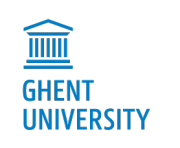General information
The Mares Conference 2016 will commence with two days of MARES Consortium / EuroMarine Network high level training workshops on the 1st and 2nd February 2016 aimed at students, doctoral candidates, postdoctoral fellows and researchers. Two training workshop packages will be offered: the ‘Effective Outreach Workshop’ or ‘Research Tools Workshop’. This workshop is part of the Research Tools Workshop.
Dredging and the environment
This Short course gives you a quite challenging view on the upcoming dredging and marine works and their interaction with the environment. Based on a series of illustrative running projects, the actual
picture on the negative environmental impacts of dredging activities is shifted towards an inviting and inspiring search for global solutions and added value for the project’s ecosystem.
In order to get more familiar with the dredging works, a basic understanding of dredging techniques and their processes is presented. From this general introduction on dredging equipment, an overview of both operational and technical opportunities to set up and realize a marine dredging work is given.
Next to the dredging operations altering the environment, a second part of the course identifies the environmental aspects – such as turbidity, underwater sound or water quality – as related to marine works. Focus is initially oriented towards a fundamental insight in the eco-process itself, rather than deploying a straightforward dredging impact assessment. However, dredging-induced effects are clearly specified and described as a proper base for environmental management in the marine works.
Bringing together these two main building blocks (dredging equipment & environmental aspects) creates a full challenge to surpass the traditional mitigation measures and defensive compliance monitoring. Through operational project examples, illustrative perspectives are indicated on how to engage nature values in dredging works. As such, smart combinations of dredging and environment – based on a better interactive understanding - induce both a mutual profit and sustainable solutions for global challenges.
Content
The highlighted icons, represent the fields of education (in compliance with ISCED Classification) engaged during this course/programme.
Venue
Olhão, Portugal
Real Marina Hotel
Av. 5 de Outubro
8700-307 Olhão
Portugal
Application
Click here to apply: http://www.maresconference.eu/training
Cost:
<p>30€</p>
Application Procedure:
Registration for the training workshops is open to all and is separate from the MARES conference registration.
Qualification
The Mares Conference 2016 will commence with two days of MARES Consortium / EuroMarine Network high level training workshops on the 1st and 2nd February 2016 aimed at students, doctoral candidates, postdoctoral fellows and researchers. Two training workshop packages will be offered: the ‘Effective Outreach Workshop’ or ‘Research Tools Workshop’. This workshop is part of the Research Tools Workshop.
Dredging and the environment
This Short course gives you a quite challenging view on the upcoming dredging and marine works and their interaction with the environment. Based on a series of illustrative running projects, the actual
picture on the negative environmental impacts of dredging activities is shifted towards an inviting and inspiring search for global solutions and added value for the project’s ecosystem.
In order to get more familiar with the dredging works, a basic understanding of dredging techniques and their processes is presented. From this general introduction on dredging equipment, an overview of both operational and technical opportunities to set up and realize a marine dredging work is given.
Next to the dredging operations altering the environment, a second part of the course identifies the environmental aspects – such as turbidity, underwater sound or water quality – as related to marine works. Focus is initially oriented towards a fundamental insight in the eco-process itself, rather than deploying a straightforward dredging impact assessment. However, dredging-induced effects are clearly specified and described as a proper base for environmental management in the marine works.
Bringing together these two main building blocks (dredging equipment & environmental aspects) creates a full challenge to surpass the traditional mitigation measures and defensive compliance monitoring. Through operational project examples, illustrative perspectives are indicated on how to engage nature values in dredging works. As such, smart combinations of dredging and environment – based on a better interactive understanding - induce both a mutual profit and sustainable solutions for global challenges.
Registration for the training workshops is open to all and is separate from the MARES conference registration.

 Universiteit Gent (Ghent University)
Universiteit Gent (Ghent University)

